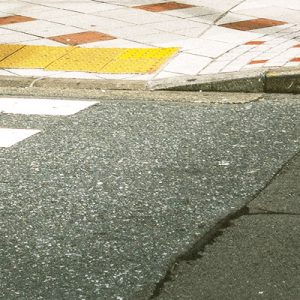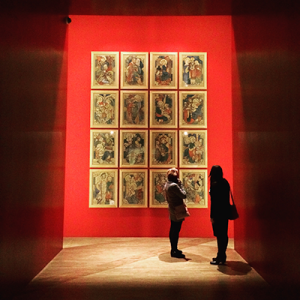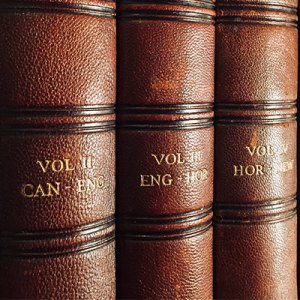As part of our Public Scholarship Series, where we host presentations by humanities scholars and other experts on publicly-engaged methods and skills, we have created a number of toolkits to assist with various kinds of public scholarship and practice. Each toolkit is themed around a specific kind of public scholarship. Please see below for a list of toolkits that are currently available. As we develop more, they will appear below in this same list. Toolkits are also periodically updated as necessary.
 Art and Testimony
Art and Testimony
This toolkit builds on the advice and resources shared by experts in a webinar series exploring arts-based research methodologies for constructing survivor testimonies. The chapters examine a variety of art forms—including performance, graphic novels, and comics—as approaches for documenting testimonies, conducting research, and teaching. Organized into three thematic clusters, the toolkit provides both methodological insights and practical resources available at UBC and beyond.
- Performance as Testimony
- Videotaped Interviews, Graphic Novels and Comics as Testimony
- Teaching through Visual Testimony
 Trauma-informed Research
Trauma-informed Research
This toolkit builds on the advice and resources shared by experts in a webinar series on trauma-informed research and practice. It introduces four thematic clusters with methods of trauma-informed research and further points to resources available at UBC and beyond.
- Trauma-informed Research as Witnessing
- Trauma-informed Research as Pedagogy
- Trauma-informed Methods of Public Scholarship
- Trauma-informed Research and Arts-based Methods
 Witnessing Genocide
Witnessing Genocide
This toolkit is for scholars whose work engages with the public realm and/or takes on public forms. It is also for public intellectuals who take up the role of the scholar-activist, or whose work is informed by theories and modes of changemaking. It builds from and expands upon the discussions and resources shared by scholars and engages with the following core questions. In the face of a genocide:
- What is the role of the public intellectual?
- How does the public scholar engage in responsible, ethical, and productive knowledge mobilization activities?
- What kinds of publicly-engaged activities can most meaningfully contribute to acts of witnessing?
 Creating Accessible Events
Creating Accessible Events
In this toolkit, you will find:
- A compilation of services and tools to organize more accessible events at UBC Vancouver Campus
 Curating Exhibitions
Curating Exhibitions
In this toolkit, you will find:
- Examples produced by Humanities scholars as well as industry and community professionals
- Examples of digital exhibitions and the difference between digital and physical installations
- Tools and software to build digital exhibits or supplementary materials for physical exhibits and more
Making Infographics
In this toolkit, you will find:
- Resources for getting started in making, disseminating, and teaching with infographics
- Examples of infographics from other scholars
- Tools and software for making infographics
 Podcasting
Podcasting
In this toolkit, you will find:
- Podcasts produced by other academics on various topics and formats
- Recording facilities, training, and learning resources on and off campus
- Information about where to host your podcast files
- Popular podcast directories and more

Using Wikipedia
In this toolkit, you will find:
- Discussions around three thematic clusters: Wikipedia as Advocacy, Wikipedia as Pedagogy, Wikipedia as Public Scholarship
- Wikipedia resources
 Writing Op-Eds
Writing Op-Eds
In this toolkit, you will find:
- Examples of op-eds by humanities scholars
- Op-ed writing resources
- Guiding questions and considerations for writing an op-ed
- Further reading on op-eds and writing for the public
- Where to submit op-eds in Canada and beyond
